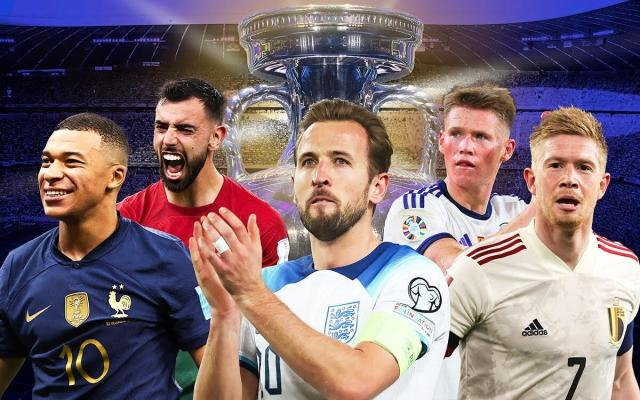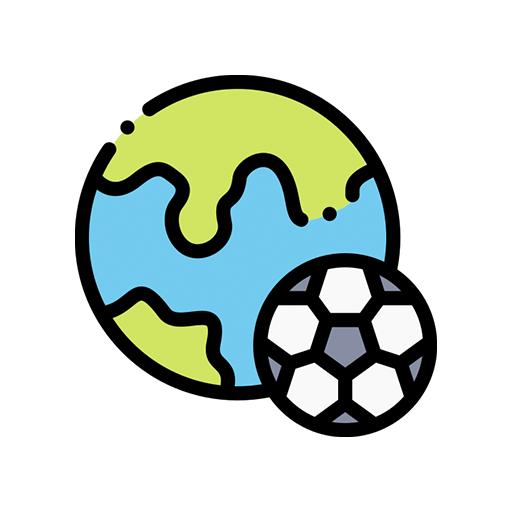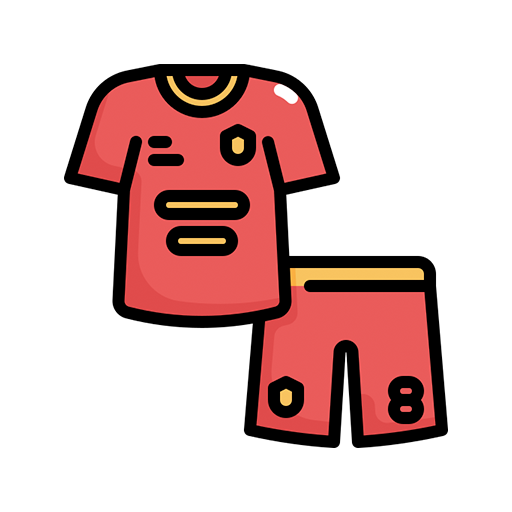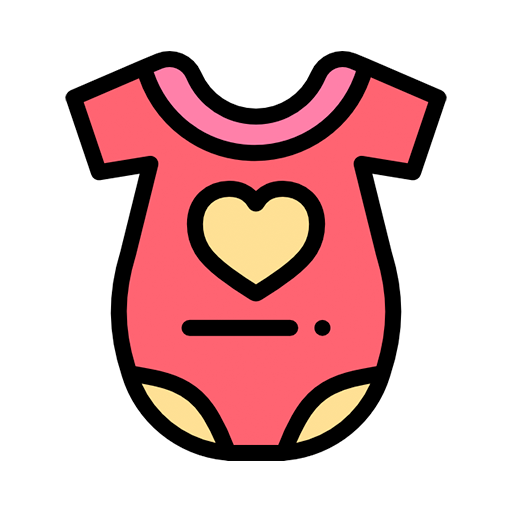
European Championship Beginner's Guide
Share
From 1960 to 2024, the European Championship has been held for 16 editions, with 10 different countries winning the title. Of course, some countries have become a part of history, like the Soviet Union, Czechoslovakia, and West Germany. However, it is precisely due to these changes that make the European Championship have such glorious historical significance.
Participating Teams
This year's European Championship has a total of 24 participating teams, divided into 6 groups. 36 group matches and 15 knockout matches will be played to determine the champion. The final list of all teams has been announced. Among them, the host country is Germany, and Spain, England, France, Belgium, and Portugal are in the first tier.
Here are the detailed groups:
- Group A: Germany, Scotland, Hungary, Switzerland
- Group B: Spain, Croatia, Italy, Albania
- Group C: England, Denmark, Slovenia, Serbia
- Group D: France, Netherlands, Austria, Poland
- Group E: Belgium, Ukraine, Romania, Slovakia
- Group F: Portugal, Czech Republic, Turkey, Georgia
Key Matches
There are many exciting matches during the European Championship that are worth watching. Here are some recommended must-see matches!
Germany vs. Scotland. The opening match will kick off at 21:00 on June 14 in Munich, and the public is very eager to see what kind of spiritual appearance the host will display under the leadership of Nagelsmann and whether it can continue to dominate the record against Scotland.
Spain vs. Croatia. The match will start at 18:00 on June 15. Croatia was defeated by Spain in the last European Championship and also lost to Spain in the final of the Nations League. This match will be Croatia's revenge!
Serbia vs. England. The match will start at 21:00 on June 16, featuring Europe's most luxurious team against Serbia, who has been struggling in recent years. Of course, Serbia is now a representative of attacking football, but their defense is terrible. It will be interesting to see how the two teams will clash in attack.
Austria vs. France. The match will start at 21:00 on June 17. Austria's configuration could make them a dark horse in this European Championship. However, due to the absence of Alaba, the team's efficiency in transitioning from defense to attack will be greatly reduced. But one thing is for sure, it won't be easy for France to easily defeat Austria.
Germany vs. Hungary. The match will start at 18:00 on June 29. This match can be considered as a showdown between the allies. Hungary has dominated in recent encounters, and Germany has really had no way to deal with them. With Szoboszlai on the pitch, the clash between the two teams is bound to be exciting!
Denmark vs. England. The match will start at 18:00 on June 20. This is also a revenge match! Denmark was overturned by England in the last European Championship, but they also created a dark horse miracle. When they meet again, Denmark is eager to seek revenge.
Spain vs. Italy. The match will start at 21:00 on June 20. Old rivals! Italy eliminated Spain in the last European Championship and reached the pinnacle of Europe by defeating the Spanish team. Coincidentally, the three strong teams in this group have formed a perfect revenge loop!
Netherlands vs. France. The match will start at 21:00 on June 21. They faced each other in the qualifying round, but the Netherlands was directly defeated by France. However, as traditional strong teams in European history, the clash between the two teams is naturally a highlight!
Switzerland vs. Germany. The match will start at 21:00 on June 23. This one-superpower-multiple-strong-teams situation is no less challenging than a death group. After all, Hungary and Switzerland both have the ability to create surprises. Therefore, every match in this group is a test for Germany, especially against Switzerland, who is good at playing against strong teams.
Croatia vs. Italy. The match will start at 21:00 on June 24. These two teams have similar playing styles recently. Of course, Italy may be more inclined to defense compared to Croatia. However, considering that this is the last round, both teams will definitely do their best to secure a spot in the knockout stage!
The European Championship is a star-making factory. Which rising stars are worth our attention this year? Here is a partial list:
Musiala (Germany), Wirtz (Germany), Pavlovic (Germany), Soboszloy (Hungary), Amar (Spain), Nico Williams (Spain), Pedri (Spain), Fagioli (Italy), Stanišić (Croatia), Gvardiol (Croatia), Asllani (Albania), Camavinga (France), Baumgartner (Austria), Højlund (Denmark), Šeško (Slovenia), Bellingham (England), Menou (England), Eze (England), Adam Wharton (England), Palmer (England)
In the summer of 2024, the European Championship will unfold passionately in ten cities in Germany. From Munich to Berlin, the flame of football will burn brightly on this Germanic land. The opening match will be a clash between the host Germany and Scotland, not only a contest between two teams but also a collision and fusion of two cultures. What are the highlights of this European Championship?
Hosting Cities
The Euro2024 in Germany will be held in 10 cities, including Berlin, Munich, Dortmund, Gelsenkirchen, Stuttgart, Hamburg, Düsseldorf, Cologne, Leipzig, and Frankfurt. Among them, Berlin, Munich, and the Allianz Arena will serve as the largest venues, each hosting six matches. The Westfalenstadion in Dortmund, another major venue, will also host six matches. These four stadiums will collectively host more than one-third of all the matches.
Who Will Survive the Group of Death?
Group B, consisting of Spain, Croatia, Italy, and Albania, forms the Group of Death of this European Championship. Spain, a traditional powerhouse, has lifted the Henri Delaunay Trophy three times and won the previous UEFA Nations League, with Croatia as their opponent in the final. While Croatia is not a traditional powerhouse, their recent performances in major tournaments are indisputable, and their defeat in the quarter-finals of the previous European Championship might spur on the team to achieve stronger results. Italy, as the defending champion, has failed to impress after their triumph, and only narrowly qualified for this tournament as the second-place finisher in their group. However, Italy often starts slow in qualifiers and group stages, so their performance in the knockout rounds is still anticipated.
Farewell Matches for Veterans
This European Championship may serve as a farewell to several veteran players in their national teams. Ronaldo, already 39 years old, and Pepe, 41, will lead Portugal in their quest for the title once again. Luka Modrić, also 39, might be playing his "last dance."
France's national team top scorer, Olivier Giroud, has already stated in an interview that he will retire from the national team after the European Championship. German star Toni Kroos has announced that he will retire directly after the European Championship.
Therefore, their matches will undoubtedly attract worldwide attention. Meanwhile, the "youth storm" led by English players has already begun. In past European Championships, some unexpected "big-game players" like Tomáš Šík, Federico Chiesa, and Antoine Griezmann have emerged. Will this tournament produce new stars?
Microchips Ushering in New Technology
Apart from the highly anticipated group draws and star players, many elements both on and off the field of this European Championship will have brand-new highlights.
The official match ball for the 2024 UEFA European Championship in Germany incorporates new technology that can determine whether there was a handball offense before a goal. Moreover, the microchip will assist the referee team in judging offside.
The microchip inside the ball can be used in conjunction with limb-tracking technology. This will allow for the real-time creation of a 3D visual representation of the player's bones. Thus, these devices will create computer images for VAR assistant referees, accurately showing where the ball struck the body. This solution will eliminate any doubts about the exact contact point between the ball and the player's upper limbs.
Some people who have witnessed this new technology in football experiments reveal that they are particularly surprised by this level of accuracy. Additionally, the device inside the ball can determine the exact time the ball is kicked, meaning it will work with limb-tracking cameras to aid in extremely precise offside decisions.
Mbappé's Star Power
After joining Xiaohongshu, Mbappé, like an interstellar helmsman, is steering the galactic warship towards the shore of glory. He has injected a gale-force dynamic into the French team. It is exciting to see if he can lead France to reclaim the European throne after 24 years.
The Final Chapter for Post-85 Stars
A group of stars born in the late 1980s, led by Ronaldo, including Modrić, Neuer, Lewandowski, and others, seem to be nearing the end of their European Championship journey. This will be their final stage. Can they create miracles once again and shock the world?
Midfield Masters of the Post-90s
The performances of midfield masters like Kroos and Kevin De Bruyne, born in the 1990s, will directly determine the fate of their teams. Who will stand out in this fierce competition and become the midfield commander of their team?
Post-2000 stars
The post-2000 stars such as Jude Bellingham, Florian Wirtz, and Jamal Musiala, are like the rising sun, full of boundless possibilities. In this grand European Cup extravaganza, who will become the brightest star, shining brilliantly?
After four years of waiting, the grand return of the European Cup is not only a restart of the football extravaganza but also a rekindling of passion and fervor. Every match will be a thrilling competition, and every goal will be a jubilant celebration filled with passion. Whether you are there in person or watching through the screen, you must not miss this football extravaganza filled with passion and dreams.




